We want to share our story about the broader impact that sourcing botanicals can have on communities. This article tells the story of a novel Amazonian tea and its incredible impact on the indigenous people that produce it.
What is Guayusa?
Guayusa (“gwhy-you-sah”) is a caffeinated holly species that grows only in the upper Amazon basin of Colombia, Ecuador, and Peru. Historical records suggest that leaves from guayusa have been used and traded since at least 500 CE.i Traditionally, indigenous societies, such as the Amazonian Kichwa, brew guayusa leaves much like tea. However, guayusa is not related to Camellia Sinensis used to make green or black tea varieties. Instead, guayusa is a cousin plant to yerba mate and contains an intricate makeup of antioxidants and caffeine. Current research on guayusa demonstrates that its unique functional attributes provide a focused, cognitive energy. As a result, this ingredient is quickly becoming a perfect match for the premium energy market, which caters to sports nutrition, nootropics, and esports products.
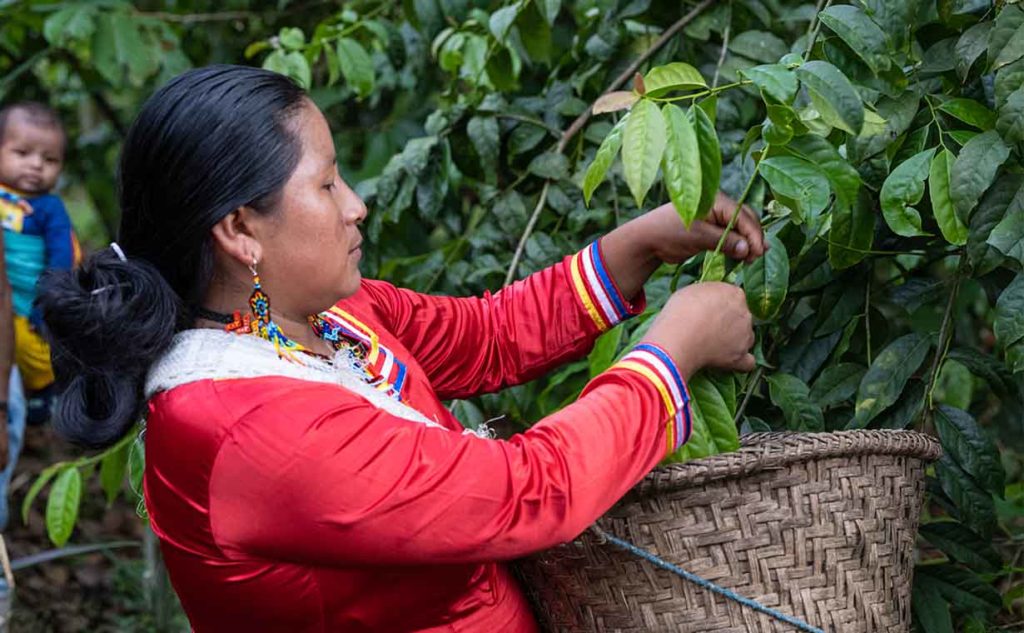
Environmental Impact – Thriving in ancient agroforestry gardens.
Over the last six years, Applied Food Sciences (AFS) has worked to build a sustainable supply chain of responsibly and ethically sourced guayusa through cooperatives and associations of indigenous smallholder farmers across Ecuador and Peru. Rather than industrial plantations, we work with thousands of independent farming families from more than ninety different communities to source our guayusa. Our collective mission is to provide high-quality organic guayusa and ensure a stable and diversified income for our farming communities and the environmental conservation of the Amazon rainforest.
Like many Amazonian plants, guayusa does not thrive in mono-crop systems. Instead, guayusa is grown in ancient forest gardens known as “chakras” among trees and other vegetation utilizing patterns observed in nature. Chakras apply similar growing techniques to agroforestry and permaculture. Farming in this method reduces the need to degrade or cut down the rainforest and creates a more diverse, productive, and ecologically sound land-use system.ii Some Chakras will have more than fifty native hardwood trees and ninety different species of edible or medicinal herbs. The guayusa we cultivate is certified organic and Non-GMO Project Verified.
Cultural Impact – The value of supporting indigenous people.
Within the global supply chain, we face a daunting reality. The world’s indigenous peoples make up less than 5% of the total human population yet manage to protect 80% of the global biodiversity.iii Ecuador just so happens to be one of the seventeen megadiverse countries of this world. Its total forest coverage is approximately 11.6 million hectares representing 42% of the national surface area.iv Heralded as the defenders of this expansive Amazon forest are the indigenous Kitchwa people. They could use all of our support.
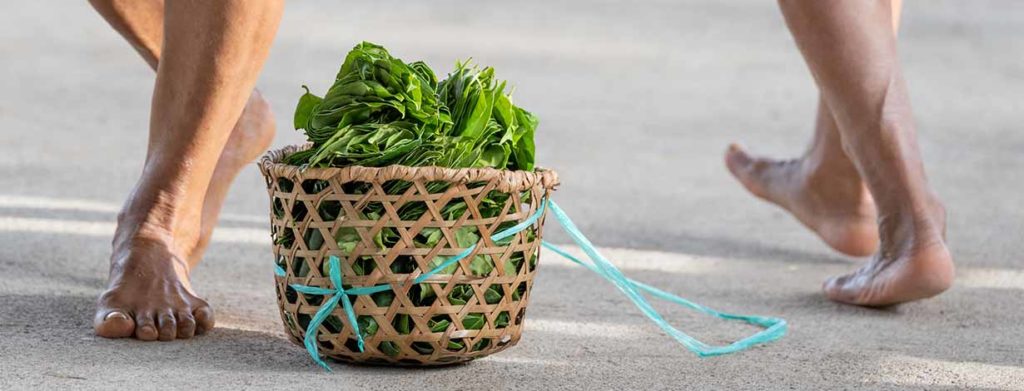
For AFS, we approach this opportunity through a collection of Kitchwa-run cooperatives representing over 4,000 Kichwa families guarding over 60,000 hectares of upper Amazon forest. The co-ops’ primary objective is to help small producers earn higher wages by sharing resources and reducing risk by including more stakeholders. The associations are also committed to the future, working with companies like AFS to help train and develop Kitchwa people in more technical fields. One of the end goals is to improve the research and cultivation of the many nutrient-rich ‘superfoods’ native to these regions.
Human Capital – Employing and empowering women and youth.
There is a global crisis: Young people are not farming, and we are steadily losing generational agriculture practices. In the US, for example, the average age of farmers is 57.5 and has been on the rise for thirty years.v When there are gaps in intergenerational agriculture, the consequences affect the entire community economically, environmentally, and culturally. However, some examples fall counter to this alarming trend. For instance, in Kitchwa communities, women mainly run chakras, and young people are educated and empowered by their families to be involved.
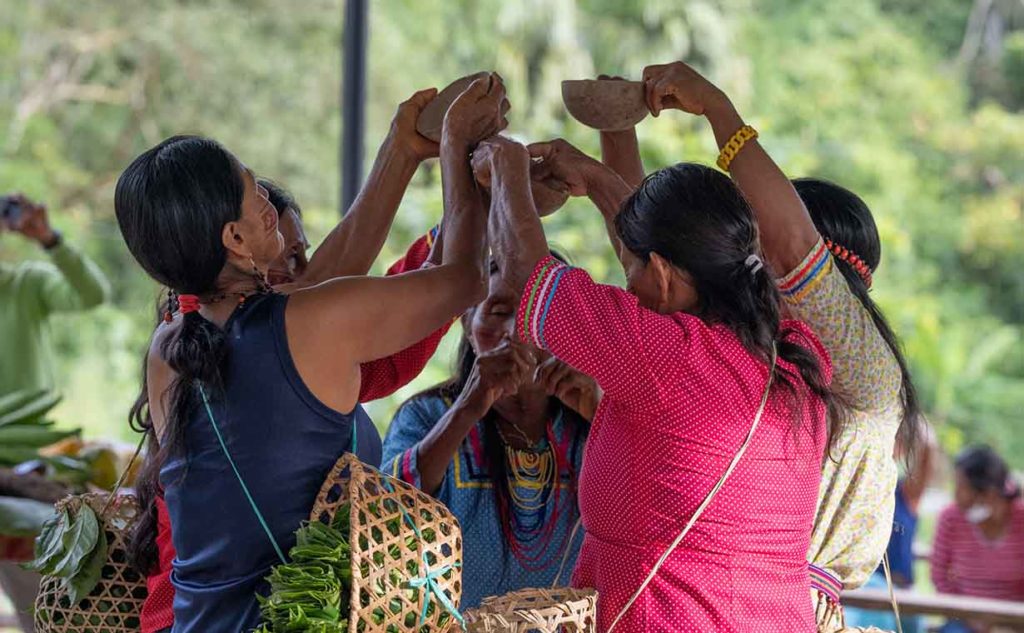
Often referred to as “Chakra Mamas,” the Kitchwa community’s women are entrusted to be the primary caretakers of these ancient agroforestry gardens. In addition, they have the important task of preserving ancestral knowledge and passing it on to future generations. Cultivating the chakra includes planting and managing seeds, monitoring dynamic ecosystems, and adapting to changes in climate. There is a lot at stake, and these families understand it is essential to entrust the youth to become the next stewards. The indigenous smallholder farms that AFS works with consist of around 66% women producers and 25% young people under the age of thirty. But our investment in human capital goes a step further.
Communities with educated, healthy, and skilled workers experience better economic growth and stability. These individuals tend to be leaders of innovation and entrepreneurial activities and statistically will lead to even more high paying jobs within the community. vi AFS contributes by providing more science, engineering, and other STEM-related training opportunities. Our scientists regularly travel to Ecuador to work with the local community and collaborate on establishing best practices for product quality, safety, and transparency.
Social Impact – Guayusa is part of our daily lives.
Guayusa is a part of everyday life in Ecuador. At around 2:00 AM each morning, you will find abuelas or other family members preparing “the guayusita.” It is a guayusa ceremony that starts before dawn by boiling a large pot of guayusa leaves. After a few hours, other community members will join in a concentrated guayusa tea brew served in a traditional “pilchi” wooden bowl. They say the guayusa will energize them, but also that it will purify and protect each person as they start their day. The community uses the morning time to seek guidance from the elders, often depicting dreams from the night before. This daily practice illustrates how guayusa connects the Kitchwa people.
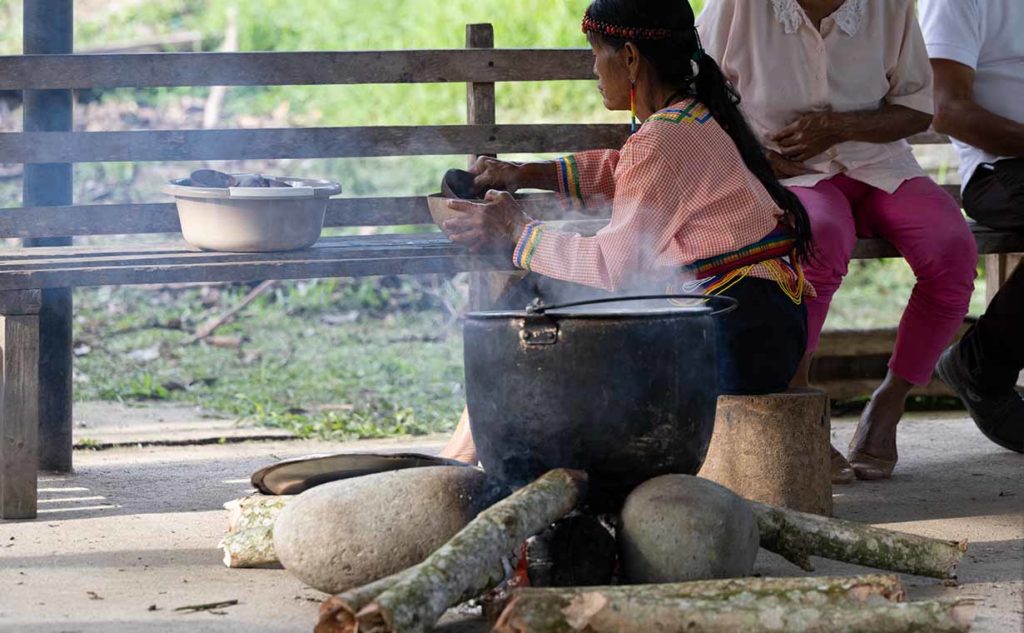
Another wonderful example of guayusa’s social impact is the story of the Night Watchman. For centuries this is the nickname Kitchwa hunters gave as they would drink guayusa before evening hunts. Hunting leaders say that guayusa sharpens their awareness and gives them energy while simultaneously providing calmness, allowing them to stay perfectly still without being restless. These seemingly counterintuitive benefits are described throughout Kitchwa history and are just one more example of how guayusa connects the Kitchwa people.
Financial Impact – A community partnership
The actual financial impact of guayusa is still largely underrealized. Within the last ten years, many families we work with only grew small amounts of guayusa in their chakras for daily consumption. Only recently did guayusa start to demonstrate its economic potential, and families began to cultivate it intentionally. Today guayusa has economic, cultural, and historical value in Ecuador and abroad. This crop symbolizes the Kichwa culture and its progress on a global level.
Many communities have extensive chakras consisting of coffee, bananas, cassava, cocoa, vanilla, ginger, turmeric, and lately, guayusa. Families are reporting that because of the ongoing commercialization of guayusa, they have improved their income by upwards of 40%. Additionally, it has been a vital part of economic recovery during the COVID-19 pandemic. Applied Food Sciences is now the largest purchaser of guayusa in the region, and we are proud to contribute to a positive financial impact on the community.
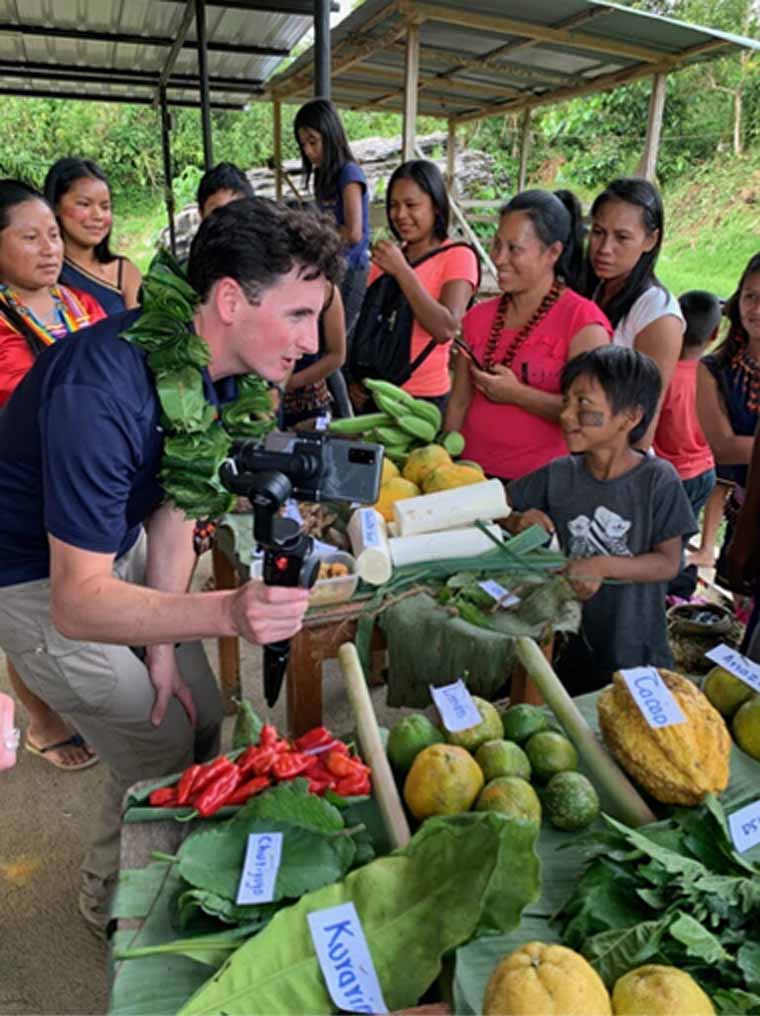
The ongoing success of guayusa depends a lot on the marketability of the ingredient outside of Ecuador within specialty markets and the natural products industry. We put our best foot forward with AmaTea® Max organic guayusa extract standardized to the two most notable active compounds in guayusa in caffeine and chlorogenic acids. We continue to support our ingredient’s unique functional benefits through ongoing clinical research bridging the gap between ancient history like the “Night Watchman” and modern science. The supplement and beverage companies we supply are excited about the more focused energy that guayusa provides. But it is the sustainable story behind the ingredient that makes us all fall in love with guayusa.
Article first posted on FoodDive.com
[i] Lorence, David H., 1999, Monographs in Systematic Botany of the Missouri Botanical Garden, Vol. 75. Missouri Botanical Garden, St. Louis, Missouri
[ii] Erhardt/Bünner, 2012. D+C Development and Cooperation, Agroforestry makes sense for marginalized people in the Philippines Uplands
[iii] Garnett, Stephen T. et al. – A spatial overview of the global importance of Indigenous lands for conservation
[iv] SCBD 2022. Status and trends of biodiversity, including benefits from biodiversity and ecosystem services
[v] USDA 2017 Census of Agriculture). By 2030, an estimated 70% of privately held farmlands within the US will change ownership (Shute, [vi] Lindsey Lusher. 2011 BUILDING A FUTURE WITH FARMERS: Challenges Faced by Young, American Farmers and a National Strategy to Help Them Succeed
[vii] Henderson and Abraham, 2005; Metcalfe and Ramlogan, 2005; Munnich and Schrock, 2003




